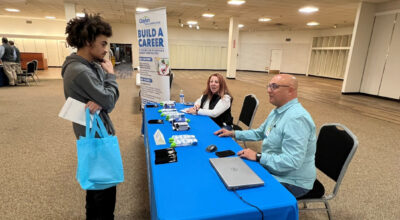Giving Tuesday: Be sure to check out your charity
Published 10:19 am Friday, November 28, 2014
After Black Friday, Small Business Saturday and Cyber Monday comes Giving Tuesday – “one day defined by generosity”. If you are giving, Better Business Bureau has 10 tips for how you can give wisely.
“BBB urges you to give,” said BBB President Tom Bartholomy, “but give wisely.” BBB reviews charities against 20 Standards for Charity Accountability established by the BBB Wise Giving Alliance. United Way of Central Carolinas requires all charities that apply for funding from United Way be reviewed by BBB and the organizations must meet all 20 Standards.
Donors can check out a local charity on BBB Charlotte’s website.
“Charities should be eager to provide you with information you need to make your charitable giving decisions,” Bartholomy added. “If they are reluctant to disclose information, you should ask why.”
The BBB has the following information on local charities:
• Charities that meet the BBB Standards for Charity Accountability
- Charities that meet the standards and have become BBB Accredited Charity Seal Holders
- Charities that are currently under evaluation to see if they meet the BBB’s standards.
- Charities that do not meet one or more of the BBB’s standards.
- Charities that did not disclose information requested by the BBB
BBB’s 10 Tips for Wise Giving
- Research before you give. Go to bbb.org to check out a charity.
- When in doubt, check it out. If you are unfamiliar with an organization that is soliciting donations, do not give without getting details about the charity first.
- Do not be fooled by low overhead claims. Some charities spend smaller portions of their annual budgets on fundraising and administration, yet still fail to meet one or more of the BBB’s twenty Standards for Charity Accountability.
- Get the charity’s information. Ask for the charity’s name, address, and written information on the charity’s programs and finances.
- Watch out for cases of mistaken identity. Some charity names sound alike. Be careful that the one soliciting you is the one you have in mind.
- Know how much of your purchase goes to the charity. If something is being sold to benefit a charity, be wary of statements such as “all proceeds go to charity.” Look for a disclosure that states exactly how much will go to the charity’s programs.
- Watch out for charity fraud. Legitimate charities are transparent and willingly provide written information about their programs and finances.
- Give by check or credit card. Charitable contributions to tax-exempt organizations may be tax-deductible to you. When you give by check or credit card, you have proof of your donation when it’s time to do your taxes. Never be pressured into giving cash and never give via wire transfer.
- Just say no. If you get a call from an unfamiliar organization asking for a contribution over the telephone by credit card, just say no and hang up. The caller could be calling you from anywhere in the world. The longer they keep you on the telephone, the more likely they will be to pressure you into giving. Once they have your credit card number, they could max out your credit limit within minutes.
- Do not click on links or downloads. If you get an email from an unfamiliar organization asking for a contribution, do not click on links or download attachments. You could download viruses to your computer. Scammers send out millions of fake ‘phishing’ emails every day to steal your personal information.
For more information about charitable giving, please visit the bbb.org.




